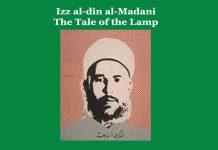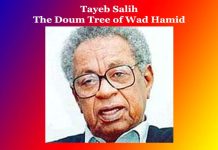The Irony in the Short Story Deliverance
The Irony in the Short Story Deliverance
The Irony in the Short Story Deliverance
The ‘irony’ is a literary device in which a view, event, action or situation is expressed or presented in such a way that seems deliberately contrary to what one expects. There are three main types of irony: verbal, situational and dramatic. Verbal Irony is expressed through words or sentences. It occurs when a speaker’s intention is the opposite of what he says. For example, a person, while drinking a bitter pill says, ‘How sweet the pill tastes!’ Verbal irony is often funny. Situational Irony occurs when the actual result of a situation or action seems totally different or opposite from what is expected. Situational irony tends to be either funny or tragic. Dramatic irony is created when the audience knows a piece of information that the character of the story does not. Dramatic irony is often tragic. A speaker or writer uses irony as a literary device to create suspension, and tension or to sustain the listeners’ interest. In the story ‘Deliverance’, the author has employed irony very effectively. The first instance of irony (verbal) in the story is shown by Dukhi when he utters, being affected by the appearance of the Pandit: ‘How godly a sight!’ But later on, it proved to be contrary to what Dukhi said because the readers would see that Dukhi had to suffer a lot at the house of the Pandit.
The second instance of irony is employed in the story when Dukhi asked for a bit of fire to light his pipe to smoke. It seems that the Pandit is sympathetic to him and said, addressing Panditayin, ”The fire is lit, so give him his light.” Then Dukhi went inside the house but the wife of the Brahman made an objection. Thereupon the Pandit said, ‘He has come inside — so what? Nothing that belongs to you has been stolen. The floor is clean, it hasn’t been desecrated. Why not just let him have his light — he’s doing our work, isn’t he?” Then the Panditayin had brought the coals in pair of tongs. From a few feet away, with her veil drawn over her face, she flung the coals towards Dukhi.
The third example of the discrepancy between our view of events and that of Dukhi appears when the Pandit asked his wife to give some bread to Duhki. But the Panditayin said, ”Let’s forget the whole thing. I’m not going to kill myself cooking in weather like this.” Thereupon Dukhi had to remain without food all day long.
The fourth instance of irony used in the story is when the Pandit saw that Dukhi did not spill the wood then he said, ”You have not even made a dent of it. So if you don’t find an auspicious day for your daughter’s marriage, don’t blame me.” Here it proves that the finding of an auspicious day depends on how the Pandit is pleased by Dukhi.
The last instance of irony is portrayed in the ending section of the story. ‘Dukhi’ the name was given by his parents to avert the misfortune of life. But it results in the opposite as Duhki lived in extreme hardship and died pathetically. Even he could not have funeral rituals.
Thus the author Premchand uses lots of irony in the story through which he reveals the hypocrisy of the Brahmins. 0 0 0. The Irony in the Short Story ‘Deliverance
The Irony in the Short Story Deliverance
Read More: Premchand’s ‘Deliverance’: An Analytical Study
The Irony in the Short Story ‘Deliverance
N. B. This article entitled ‘The Irony in the Short Story ‘Deliverance” originally belongs to the book ‘World Short Story Criticism‘ by Menonim Menonimus. The Irony in the Short Story Deliverance
Books of Literary Criticism by M. Menonimus:
- World Short Story Criticism
- World Poetry Criticism
- World Drama Criticism
- World Novel Criticism
- World Essay Criticism
- Indian English Poetry Criticism
- Indian English Poets and Poetry Chief Features
- Emily Dickinson’s Poetry-A Thematic Study
- Walt Whitman’s Poetry-A Thematic Study
- Critical Essays on English Poetry
- Tawfiq al-Hakim’s Novel: Return of the Spirit-An Analytical Study
- Tawfiq al-Hakim’s Novel: ‘Yawmiyyat Naib Fil Arayaf’-An Analytical Study
- Analytical Studies of Some Arabic Short Stories
- A Brief History of Arabic Literature: Pre-Islamic Period …
Books on Linguistics by M. Menonimus:
- A Brief History of the English Language
- Essays on Linguistics
- My Imageries
- Felicitous Expression: Some Examples
- Learners’ English Dictionary
Related Searches:











